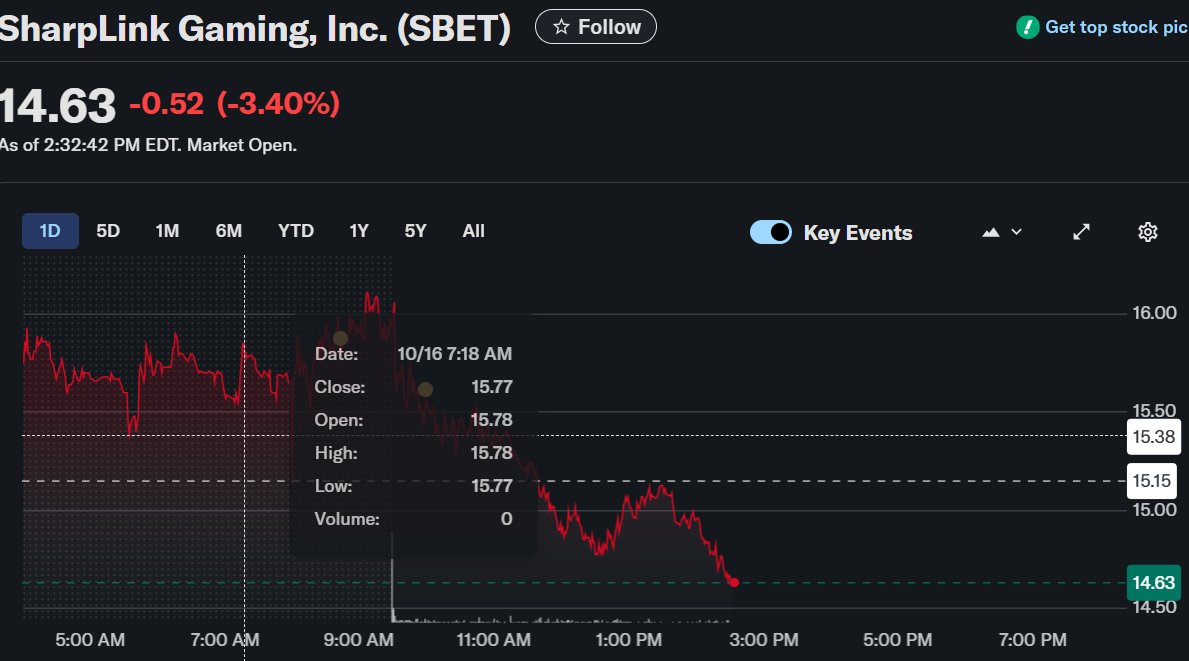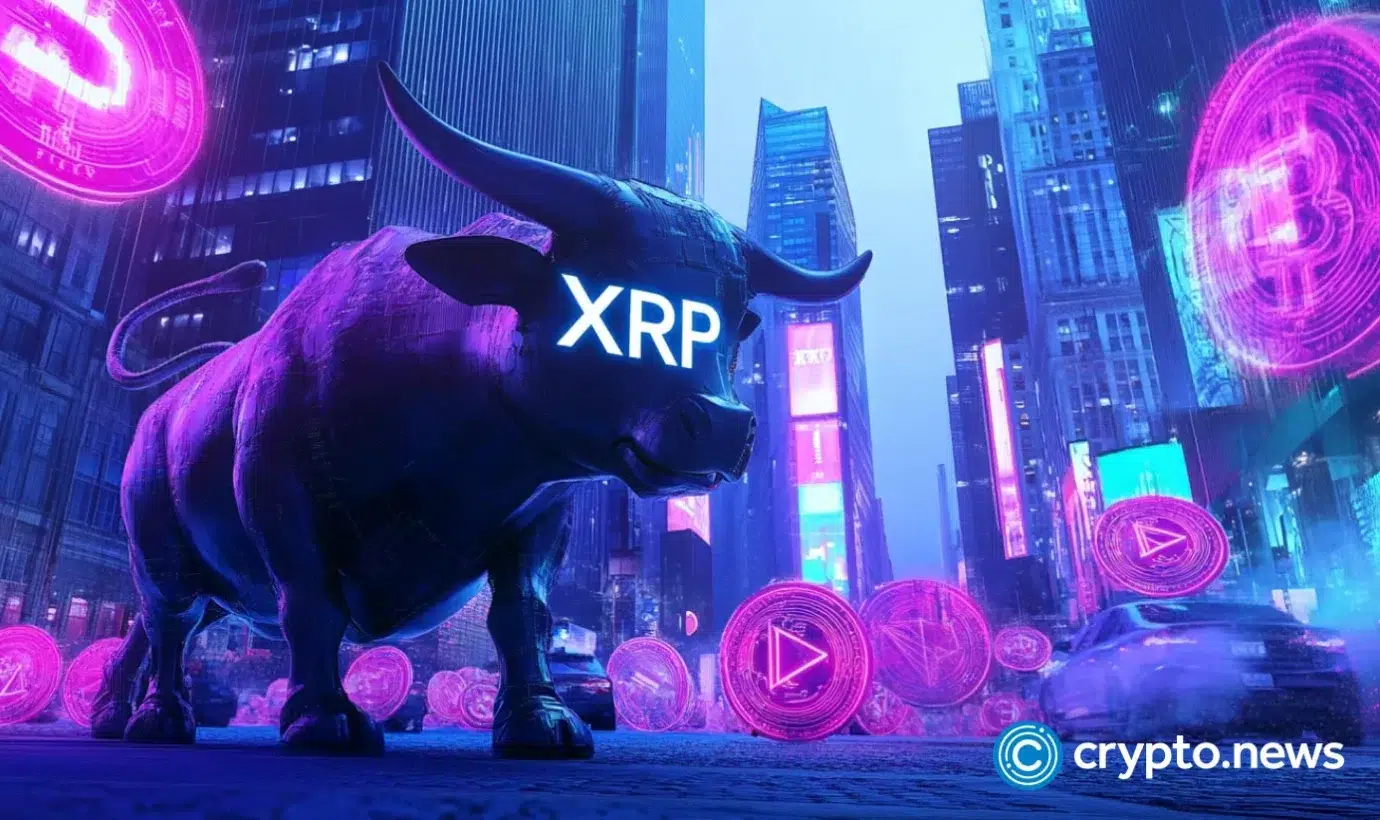SharpLink Gaming Inc. (SBET) Stock: Drops Despite $76.5M Premium Equity Deal Backed by Ethereum Vision
TLDR
- SharpLink seals $76.5M ETH-backed equity deal despite market slide.
- Premium $17 share sale lifts SharpLink’s Ethereum-driven vision.
- $78.8M PPC adds capital boost to SharpLink’s ETH-heavy portfolio.
- SharpLink doubles down on Ethereum amid tokenization surge.
- Stock dips 3.4% even as SharpLink secures premium funding deal.
SharpLink Gaming Inc. shares fell steadily throughout the day, losing 3.4% from morning highs near $15.78 to $14.63.

SharpLink Gaming Inc. (SBET)
The decline occurred despite a significant announcement involving a $76.5 million equity deal with an institutional entity. The company structured the transaction at a premium to both its market price and Ethereum-linked net asset value.
The agreement involves the sale of 4.5 million shares at $17.00 each, exceeding the October 15 closing price of $15.15. The premium price also surpasses the company’s estimated ETH-backed net asset value per share. Despite this strategic move, the stock experienced downward momentum throughout the session.
The offering follows a shelf registration declared effective by the SEC on May 30, 2025, under Form S-3ASR. A prospectus supplement will accompany the offering documentation once filed with the SEC. The deal is expected to close on October 17, subject to standard conditions.
Premium Purchase Contract adds another $78.8M potential funding over 90 days
Alongside the share sale, SharpLink granted a 90-day premium purchase contract (PPC) to the same institutional entity. This gives the buyer the right to acquire up to 4.5 million additional shares at $17.50 each, expiring on January 15, 2026. This would raise a further $78.8 million if fully exercised.
This structure allows SharpLink to raise capital above both market value and ETH holdings, while also boosting future financial flexibility. The company expects the transaction to improve Ethereum-per-share metrics for its stakeholders. The PPC term adds a strategic buffer for potential extended capital inflow.
A.G.P./Alliance Global Partners are handling the direct offering and the PPC as the exclusive placement agent. SharpLink’s legal counsel on the deal is Thompson Hine LLP, while A.G.P. is advised by Sullivan & Worcester LLP. The offering will be made solely through the filed prospectus documents.
SharpLink maintains Ethereum-focused strategy amid DeFi and tokenization growth
SharpLink Gaming continues to position itself as a major Ethereum ecosystem advocate and ETH asset holder. The company holds 840,124 ETH, making it one of the largest corporate Ethereum holders globally. This positions it uniquely in a market where tokenized assets and DeFi applications are growing rapidly.
The management reiterated confidence in Ethereum’s long-term relevance across decentralized technologies, payments, and blockchain-based finance. The raised funds are expected to support ETH accumulation and core operations without diluting NAV. This strategy signals continued alignment with Ethereum as a central asset.
SharpLink’s latest moves underline its focus on digital asset-backed equity growth while aiming to increase ETH-per-share metrics. However, the market reaction suggests short-term skepticism despite the premium pricing structure. The stock will likely react further upon the offering’s formal close later this week.
The post SharpLink Gaming Inc. (SBET) Stock: Drops Despite $76.5M Premium Equity Deal Backed by Ethereum Vision appeared first on CoinCentral.
You May Also Like

REX-Osprey’s XRP ETF hits $24m as day 1 volume outpaces futures debut

Zcash (ZEC) Rips While Bitcoin Dips — Can This Privacy Coin Run 49% Higher
